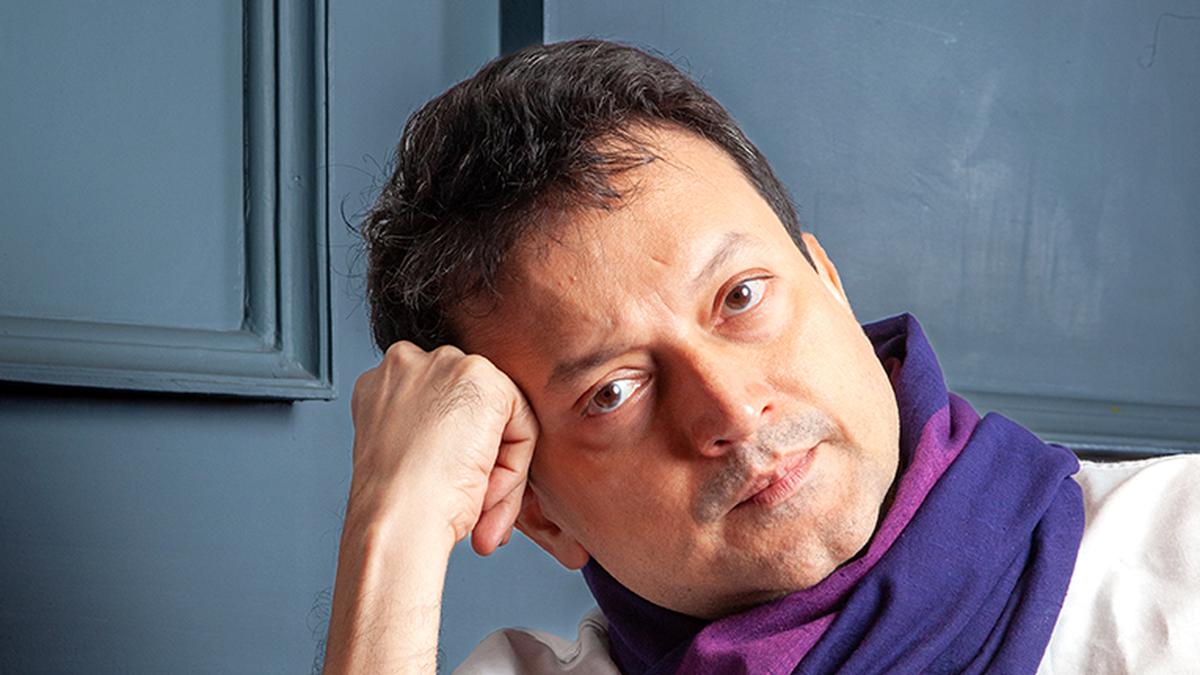
Criticism of Zionism is not anti-Semitism, says art critic Ranjit Hoskote

File photo of Ranjit Hoskote.
Opposition to Zionism, the state ideology of Israel, does not amount to anti-Semitism, renowned cultural critic Ranjit Hoskote has said in the letter of resignation he has submitted to the German art festival Documenta 16. Mr. Hoskote, who was chosen earlier this year to serve as a member of the festival’s prestigious selection committee, was accused of having anti-Semitic views after a Boycott, Divestment, Sanction (BDS) India chapter letter from 2019 resurfaced, prompting German government officials to threaten a cut in funding for the Documenta 16 exhibition.
“It pains me to say that such circumstances negate Documenta’s historic openness to a diversity of positions and its capacity for sustaining the life of the imagination in a supportive environment. I greatly fear that these circumstances will compromise the generosity of spirit and the willingness to engage in dialogue that have long been sterling features of Germany’s contribution to a global cultural politics,” Mr. Hoskote said in his resignation letter, which was circulated through his social media handle on X.
The BDS India 2019 letter, which was signed by several Indian commentators, diplomats, writers and activists, had described Zionism as a “racist ideology” that supported an “apartheid” regime in Israel. The letter had been circulated in the context of a conference on Zionism and Hindutva that was held in Mumbai and attended by Israeli diplomats. Mr. Hoskote said he had supported that letter as the conference had drawn equivalence between Hindutva icon Vinayak Damodar Savarkar and Theodore Herzl, the founder of Zionism.
He argued that Savarkar was an admirer of Adolf Hitler and that it was “highly ironic” he was compared to Herzl, who spent his life working for a homeland for the Jewish people, who were persecuted by Hitler. In his resignation letter, Mr. Hoskote described Hindutva as an “authoritarian-populist ideology that emerged in the 1920s, based on the belief that the multireligious Indian subcontinent could only fulfill its destiny as a Hindu-majoritarian nation-state…”
The BDS India letter came up last week when German news outlet Suddeutsche Zeitung published an article that depicted Mr. Hoskote as a sympathiser of the BDS, following which Documenta 16 distanced itself from the Indian member. ”The signing of the above-mentioned statement by a member of the search committee of the artistic management of documenta 16 is not remotely acceptable for us as documenta and Museum Fridericianum gGmbH due to its explicitly anti-Semitic content,” Andreas Hoffmann, Documenta’s managing director, said in a statement, adding, “We did not know Ranjit Hoskote’s signature on the statement from 2019 until yesterday. We were also not aware of the statement itself.”
In his response, Mr. Hoskote further said, “It is clear to me that there is no room, in this toxic atmosphere, for a nuanced discussion of the issues at stake. And now – in what strikes me as a doomed attempt to save a situation that is beyond saving – I am being asked to accept a sweeping and untenable definition of anti-Semitism that conflates the Jewish people with the Israeli state; and that, correspondingly, misrepresents any expression of sympathy with the Palestinian people as support for Hamas.”
Mr. Hoskote described criticism from Documenta as “appalling” and cited several intellectuals who, like him, have rejected the equation between anti-Zionism and anti-Semitism. “A system that insists on such a definition and such strictures – and which chooses to ignore both criticality and compassion – is a system that has lost its moral compass,” Mr. Hoskote said in his resignation letter sent to Andreas Hoffman, managing director, Documenta.
#Criticism #Zionism #antiSemitism #art #critic #Ranjit #Hoskote


